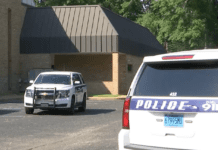In his dissent, Alito wrote, “The First Amendment guarantees the right to the free exercise of religion, and if that provision means anything, it prohibits a State from enforcing its own preferred interpretation of Holy Scripture. Yet that is exactly what New York has done in this case, and it is disappointing that a majority of this Court refuses to provide relief.
“The loss of First Amendment rights for even a short period constitutes irreparable harm …, and the appellate process in the state courts could easily drag on for many months.”
The First Amendment to the U.S. Constitution bars government establishment of religion and guarantees religious free exercise.
Yeshiva University, a 136-year-old that has more than 7,400 undergraduate and graduate students on four campuses, says education at the school is based on five Torah values – truth, life, infinite human worth, compassion and redemption. Torah refers to Jewish instruction, specifically that of the Pentateuch, the first five books of the Bible.
Yeshiva says it welcomes, provides support to and seeks to protect lesbian, gay, bisexual, transgender and queer (LGBTQ) students, but it refused to grant official recognition to the YU Pride Alliance in 2020. An alumni-student coalition sued the school.
The organizations that signed onto a brief with the ERLC were Houston Baptist University, Cedarville University, Liberty University, Biola University, Wheaton College, the U.S. Conference of Catholic Bishops, the Archdiocese of New York, The Church of Jesus Christ of Latter-day Saints and Brigham Young University. Other Christian associations, as well as various Jewish organizations, also filed briefs that urged the Supreme Court to issue a stay.
According to their brief, the ERLC and the other organizations differ in multiple ways but are united in this case “because their ability to serve and to structure their ministries as their beliefs require depends upon the protections of the First Amendment.” The lower-court decision and the appeals court’s refusal to stay the ruling constitute “a grave and pressing threat to religious liberty that warrants [the Supreme Court’s] immediate action,” they said in the brief.
This article originally appeared on BaptistPress.com.











